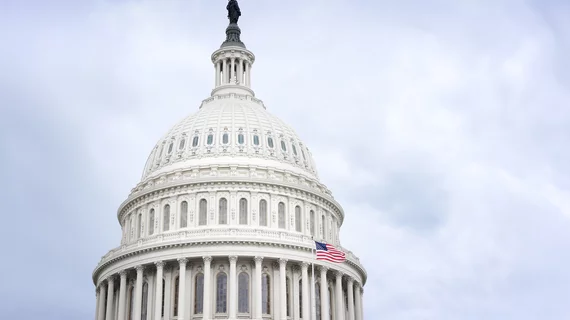Policy shifts likely to be top healthcare factor in 2019
Rising costs in healthcare was a top issue for voters in the 2018 election, and more emphasis on the industry is likely to come, according to a 2019 outlook from Avalere.
In fact, healthcare policy is likely to be one of the top issues for the sector in the year ahead, as both Democrats and Republicans shore up their healthcare policy positions as the upcoming 2020 presidential election comes into focus.
Policy predictions
One area of common ground between the two parties is drug prices. The Trump administration has put forth a handful of proposals that could lower drug prices, particularly in Medicare Part B. President Trump has taken to Twitter to attack specific drugmakers that have hiked up prices in 2018 and 2019, and the administration released a blueprint early in 2018 signaling more policies are likely to come to address the issue.
More recently, several Democrats in the House and Senate introduced a new bill package that aims to lower prescription drug prices within Medicare and for those who are privately insured.
“On prescription drugs, Democratic control of the House is likely to increase scrutiny of drug prices and patient out-of-pocket expenses,” Avalere’s report predicted. “With the President’s focus on drug costs, Congress could find support in the White House if they can reach consensus on specific reforms.”
Looking ahead, drug manufacturers are likely to face more administrative action on drug prices in Medicare Part D and Part B, according to Avalere. These pricing reforms will likely disrupt long-standing business practices and incentives across the drug marketplace.
The future of the Affordable Care Act is where the parties diverge the most. Republicans have led a charge to overturn the healthcare law through a lawsuit that argued the ACA was unconstitutional. The Department of Justice declined to defend the law in the case. In December, a judge found the law to be unconstitutional in full, throwing its future into uncertainty, though the ACA will remain the law of the land until the case works through the appeals process. Healthcare coverage in 2019 is unlikely to be impacted.
State variations
In Medicaid, states are likely to be the drivers of change in 2019, Avalere predicted. With work requirement programs approved in seven states, variations will continue to exist in Medicaid programs across state lines. Other states are also looking at expanding Medicaid as allowed under the ACA.
With respect to the ACA, the Trump administration has also allowed waivers for short-term limited-duration health plans, creating more variations across the landscape. Three states and the District of Columbia have enacted individual coverage mandates to ensure that residents have health insurance coverage after Republicans stripped the civil penalty of the federal mandate to $0 in the 2018 budget act.
Value-based care
While some aspects of the healthcare market could change, the expected increase in Medicare Advantage enrollment will likely stay the same. MA enrollment is anticipated to grow by 2.4 million in 2019 and capture 42 percent of total Medicare enrollment by 2028. With this growth, MA plans will see more flexibility in what they can cover, which has recently come to include more aspects of social determinants of health, such as nutrition and housing.
These new flexibilities will help manage overall cost of care, with providers offering more supplemental benefits, patients engaging with more types of care and services, and manufacturers strengthening their product value propositions. These changes will boost the MA market as a whole, Avalere predicted.
This push aligns with other goals in alternative payment models and value-based care agreements to treat the whole person in healthcare and reward providers and health plans on outcomes-based arrangements.

